| Conferences > Organ-on-a-Chip and Body-on-a-Chip: In Vitro Systems Mimicking In Vivo Functions "Track A" > Keynote Speakers |
| Register | Login |
Nancy AllbrittonKenan Professor of Chemistry and Biomedical Engineering and Chair of the Joint Department of Biomedical Engineering, University of North Carolina and North Carolina State University Nancy L. Allbritton is the Kenan Professor of Chemistry and Biomedical Engineering and Chair of the Joint Department of Biomedical Engineering at the University of North Carolina at Chapel Hill (UNC) and North Carolina State University (NC State). Her research focuses on the development of novel technologies for applications in single-cell analysis, micro-arrays and fluidics, and organ-on-chip and has resulted in over 180 full-length journal publications and patents and led to 15 commercial products. Her research program has been well funded by the National Institutes of Health with $60 million in grant funding since 1994. Four companies have been formed based on her research discoveries: Protein Simple (acquired by Bio-Techne in 2014 for $308M), Intellego (subsequently integrated into International Rectifier), Cell Microsystems (www.cellmicrosystems.com), and Altis Biosystems (www.altisbiosystems.com). Dr. Allbritton is a Fellow of the American Association for the Advancement of Science, the American Institute for Medical & Biological Engineering, and the National Academy of Inventors. She obtained her B.S. in physics from Louisiana State University, M.D. from Johns Hopkins University, and Ph.D. in Medical Physics/Medical Engineering from the Massachusetts Institute of Technology, with a postdoctoral fellowship at Stanford University. |
Paul GatenholmProfessor, Director of 3D Bioprinting Center, Chalmers University of Technology, Sweden; CEO, CELLHEAL AS, Norway Dr. Gatenholm is professor of Biopolymer Technology at Chalmers University of Technology, Founder of 3D Bioprinting Center, and Director of Graduate School at WWSC. He is also Adjunct Professor at Joint School of Biomedical Engineering and Sciences at Virginia Tech and Wake Forest University and Adjunct Professor of Biomaterials at Wake Forest Institute for Regenerative Medicine in Winston-Salem, North Carolina, USA. His research includes biological fabrication through the use of enzymes, cells, and the coordination of biological systems. Dr. Gatenholm is particularly interested in designing and preparing new biomaterials which can replace or regenerate tissue and organs. During past five years he has dedicated his time to development of 3D Bioprinting technology which he believes will revolutionize the field of Medicine. He has published more than 300 papers and edited several books and has more than 9000 citations. He is elected member of Swedish Royal Academy of Engineering Sciences. Dr Gatenholm is an entrepreneur and is currently CEO of new biotech start up in Oslo, Norway. |
Linda GriffithProfessor, Massachusetts Institute of Technology (MIT)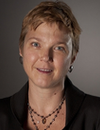 Linda G. Griffith, PhD, is the School of Engineering Teaching Innovation Professor of Biological and Mechanical Engineering and MacVicar Fellow at MIT, where she directs the Center for Gynepathology Research and the Human Physiome on a Chip Project supported by the DARPA/NIH-funded Microphysiological Systems Program. Dr. Griffith received a Bachelor's Degree from Georgia Tech and a PhD degree from the University of California at Berkeley, both in chemical engineering. Dr. Griffith’s research is in the field of regenerative medicine and tissue engineering. Her laboratory, in collaboration with J. Upton and C. Vacanti, was the first to combine a degradable scaffold with donor cells to create tissue-engineered cartilage in the shape of a human ear. The 3D Printing Process she co-invented for creation of complex scaffolds has been commercialized for manufacture of FDA-approved scaffolds for bone regeneration. She is also a pioneer in devising ways to control nano-scale stimulation of cells by molecular cues, and in creation of 3D tissue models for drug development. The 3D perfused “LiverChip” liver tissue culture technology has been commercialized for applications in drug development. A current focus is integration of tissue engineering with systems biology, with an emphasis on endometriosis and other women’s reproductive diseases. She is a member of the National Academy of Engineering and the recipient of a MacArthur Foundation Fellowship, the Popular Science Brilliant 10 Award, NSF Presidential Young Investigator Award, the MIT Class of 1960 Teaching Innovation Award, Radcliffe Fellow and several awards from professional societies. She has served as a member of the Advisory Councils for the National Institute for Dental and Craniofacial Research and the National Institute of Arthritis, Musculoskeletal and Skin Diseases at NIH. As chair of the Undergraduate Curriculum Committee for Biological Engineering at MIT, she led development of the new Biological Engineering SB degree program, which was approved in 2005 as MIT’s first new undergraduate major in 39 years. |
Reyk HorlandCEO, TissUse GmbH Dr. Reyk Horland was appointed CEO of TissUse in October 2020 following 8 years as Head of Business Development. His business network includes leading pharmaceutical and consumer product companies as well as regulatory authorities and outstanding research institutions worldwide. Prior to TissUse, Dr. Horland studied Biotechnology at the Technische Universität Berlin and specialized in Medical Biotechnology. During his academic career he was involved in various tissue engineering programs, all with a focus on the commercialization of the respective products. |
Dan HuhAssociate Professor of Bioengineering and Wilf Family Term Endowed Chair, University of Pennsylvania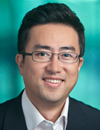 Dr. Dan Huh is Associate Professor of Bioengineering and Wilf Family Term Endowed Chair at the University of Pennsylvania. He is a pioneer of “organ-on-a-chip” technology, and his research group at Penn focuses on developing microengineered models of human organs in health and disease for a wide variety of biomedical applications. Dr. Huh has won several honors and awards including the McPherson Distinguished Lectureship, the CRI Technology Impact Award, the John J. Ryan Medal from the Royal College of Surgeons in Ireland, Design of the Year Award from London Design Museum, NIH Director’s New Innovator Award, Analytical Chemistry Young Innovator Award, TEDx Fellow, NC3Rs Annual Award, Lifetime Membership from the MOMA, SLAS Innovation Award from the Society for Lab Automation and Screening, Scientific Breakthrough of the Year from American Thoracic Society, Best Publication Award and Best Postdoctoral Award from the Society of Toxicology, Wyss Technology Development Fellowship from Harvard, Distinguished Achievement Award from Michigan, Widmer Award from microTAS, and Horace H. Rackham Predoctoral Fellowship. |
Roger KammCecil and Ida Green Distinguished Professor of Biological and Mechanical Engineering, Massachusetts Institute of Technology (MIT) Kamm is currently the Cecil and Ida Green Distinguished Professor of Biological and Mechanical Engineering at MIT, where he has served on the faculty since 1978. Kamm has long been instrumental in developing research activities at the interface of biology and mechanics, formerly in cell and molecular mechanics, and now in engineered living systems. Current interests are in developing models of healthy and diseased organ function using microfluidic technologies, with a focus on vascularization. Kamm has fostered biomechanics as Chair of the US National Committee on Biomechanics (2006-2009) and of the World Council on Biomechanics (2006-2010). Kamm currently directs the NSF Science and Technology Center on Emergent Behaviors of Integrated Cellular Systems. He is the 2010 recipient of the ASME Lissner Medal (American Society of Mechanical Engineering) and the 2015 recipient of the Huiskes Medal (European Society of Biomechanics), both for lifetime achievements, and is the inaugural recipient of the ASME Nerem Medal for mentoring and education. He was elected to the National Academy of Medicine in 2010. Kamm is co-founder of two companies, Cardiovascular Technologies and AIM Biotech, a manufacturer of microfluidic systems for 3D culture. |
Ali KhademhosseiniProfessor, Department of Bioengineering, Department of Radiology, Department of Chemical and Biomolecular Engineering, University of California-Los Angeles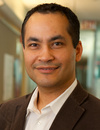 Ali Khademhosseini is Professor of Bioengineering, and Chemical and Biomolecular Engineering at UCLA Henry Samueli School of Engineering and Applied Science, and at the UCLA Radiological Sciences David Geffen School of Medicine. He is a director of the Center for Minimally Invasive Therapeutics (C-MIT) and an associate director for the California NanoSystems Institute at UCLA. He is recognized as a leader in combining micro- and nano-engineering approaches with advanced biomaterials for regenerative medicine applications. In particular, his laboratory has pioneered numerous technologies and materials for controlling the architecture and function of engineered vascularized tissues. He has authored ~500 journal papers (H-index > 104, >41,000 citations) and 60 books/chapters. In addition, he has delivered 300+ invited/keynote lectures. Dr. Khademhosseini’s interdisciplinary research has been recognized by over 40 major national and international awards. He is a recipient of the Presidential Early Career Award for Scientists and Engineers, the highest honor given by the US government for early career investigators. In 2011, he received the Pioneers of Miniaturization Prize from the Royal Society of Chemistry (RSC) for his contribution to microscale tissue engineering and microfluidics. In 2016, he received the Sr. Scientist Award of Tissue Engineering and Regenerative Medicine Society -Americas Chapter (TERMIS-AM), in 2017 he received the Clemson Award of the Society for Biomaterials and in 2018 he was honored by the Acta Biomaterialia Silver Medal (2018). He is also a fellow of the American Institute of Medical and Biological Engineering (AIMBE), Biomedical Engineering Society (BMES), Royal Society of Chemistry (RSC), Fellow of the Biomaterials Sciences and Engineering (FBSE) and American Association for the Advancement of Science (AAAS). Currently he serves on the editorial board of numerous leading journals as well as an Associate Editor for ACS Nano (IF: 13.3) and a member of NIH BTSS study section. He received his Ph.D. in bioengineering from MIT (2005), and MASc (2001) and BASc (1999) degrees from University of Toronto both in chemical engineering. Read more at: http://www.tissueeng.net/ |
Abraham LeeChancellor’s Professor, Biomedical Engineering & Director, Center for Advanced Design & Manufacturing of Integrated Microfluidics, University of California-Irvine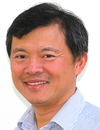 Abraham (Abe) P. Lee is Professor of Biomedical Engineering (BME) and Mechanical and Aerospace Engineering (MAE) at the University of California, Irvine (UCI). He is Director of the NSF I/UCRC “Center for Advanced Design & Manufacturing of Integrated Microfluidics” (CADMIM). Dr. Lee served as Editor-in-Chief for the Lab on a Chip journal from 2017 to 2020. Prior to UCI, he was at the National Cancer Institute and was a program manager in the Microsystems Technology Office at DARPA (1999-2001), Senior Technology Advisor at National Cancer Institute (NCI) and a group leader with Lawrence Livermore National Lab (LLNL). Over the years, Dr. Lee has pioneered research in applying microfluidics to biomedical applications, and currently focuses on integrated microfluidic systems for precision medicine including liquid biopsy, microphysiological systems, cell engineering, and immunotherapy. His research has contributed to the founding of several start-up companies. He owns 60 issued US patents and is author of over 130 journals articles. Professor Lee was awarded the 2009 Pioneers of Miniaturization Prize and is an elected fellow of the National Academy of Inventors (NAI), the American Institute of Medical and Biological Engineering (AIMBE), the Royal Society of Chemistry (RSC), the American Society of Mechanical Engineering (ASME), the International Academy of Medical and Biological Engineering, and the Biomedical Engineering Society (BMES). |
Norio NakatsujiChief Advisor, Stem Cell & Device Laboratory, Inc. (SCAD); Professor Emeritus, Kyoto University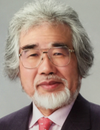 Prof. Norio Nakatsuji is Professor Emeritus of Kyoto University and Founding Director of its Institute for Integrated Cell-Material Sciences. He is also Chief Advisor of Stem Cell & Device Laboratory, Inc. and CEO of Kyoto Stem Cell Innovation, Inc. |
Michael ShulerSamuel B. Eckert Professor of Engineering, Cornell University, President Hesperos, Inc.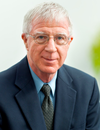 Michael L. Shuler is the Eckert Professor of Engineering, Emeritus in the Meing Department of Biomedical Engineering and in the Smith School of Chemical and Biomolecular Engineering at Cornell University, and was director of Cornell’s Nanobiotechnology Center. Shuler has degrees in chemical engineering (BS, Notre Dame, 1969 and Ph.D., Minnesota, 1973) and has been a faculty member at Cornell University since 1974. Shuler’s research includes development of “Body-on-a-Chip” for testing pharmaceuticals for toxicity and efficacy, creation of production systems for useful compounds, such as paclitaxel from plant cell cultures, and construction of whole cell models relating genome to physiology. Shuler is CEO and President of Hesperos, a company founded to implement the “Body-on-a-Chip” system. Shuler and F. Kangi have authored a popular textbook, “Bioprocess Engineering; Basic Concepts” now in its third edition. He has an honorary doctorate from the University of Notre Dame. Shuler has been elected to the National Academy of Engineering and the American Academy of Arts and Science and is a fellow of numerous professional societies. |
Danilo TagleDirector, Office of Special Initiatives, National Center for Advancing Translational Sciences at the NIH (NCATS)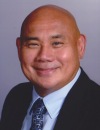 Dan Tagle is Director of the Office of Special Initiatives at NCATS where he many coordinates efforts towards development of disruptive technologies in translational research. He obtained his Ph.D. in Molecular Biology and Genetics from Wayne State University School of Medicine. He was an NIH National Research Service Award postdoctoral fellow in Human Genetics at the University of Michigan. He has served on numerous committees, advisory boards, and editorial boards. He has authored many scientific publications and has garnered numerous awards, including more recently the Roscoe O. Brady Award for Innovation and Accomplishment, and the Henry J. Heimlich Award for Innovative Medicine. |
Shoji TakeuchiProfessor, Center For International Research on Integrative Biomedical Systems (CIBiS), Institute of Industrial Science, The University of Tokyo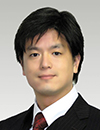 Shoji Takeuchi received the B.E, M.E., and Dr. Eng. degrees in mechanical engineering from the University of Tokyo, Tokyo, Japan, in 1995, 1997, and 2000, respectively. He is currently a Professor in the Center for International Research on Integrative Biomedical Systems (CIBiS), Institute of Industrial Science (IIS), University of Tokyo. Since 2008, he is a director of Collaborative Research Center for Bio/Nano Hybrid Process at IIS. His current research interests include membrane protein chips, bottom-up tissue engineering and biohybrid MEMS. He received several awards including Young Scientists' Prize, the Commendation for Science and Technology by the Minister of Education, Culture, Sports, Science and Technology in 2008, the JSPS prize from the Japan Society for the Promotion of Science in 2010. |
George TruskeyR. Eugene and Susie E. Goodson Professor of Biomedical Engineering, Duke University George Truskey is the R. Eugene and Susie E. Goodson Professor and Senior Associate Dean for Research in the Pratt School of Engineering. Dr. Truskey's research interests include cardiovascular tissue engineering, microphysiological systems, and the mechanisms of atherogenesis. He also studies cell adhesion and cell biomechanics, for which he focuses upon the effect of flow on endothelial cell adhesion to synthetic surfaces and monocyte adhesion to endothelium. He received a PhD degree in 1985 from MIT. He has been a faculty member in the Department of Biomedical Engineering at Duke since 1987. From 2003-2011, he was Chair of the Department of Biomedical Engineering at Duke University. He is the author of over 110 peer-reviewed research publications, a biomedical engineering textbook entitled Transport Phenomena in Biological Systems, six book chapters, over 180 research abstracts and presentations, 1 patent and 2 patent applications. He is a Fellow of the Biomedical Engineering Society (BMES), the American Institute of Medical and Biological Engineering, and the American Heart Association. He was president of BMES from 2008 to 2010. He received the Capers and Marion McDonald Award for Excellence in Mentoring and Advising from the Pratt School of Engineering at Duke (2007) and the BMES Distinguished Service Award (2012). |
John WikswoGordon A. Cain University Professor, A.B. Learned Professor of Living State Physics; Founding Director, Vanderbilt Institute for Integrative Biosystems, Vanderbilt University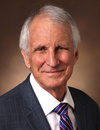 John Wikswo is the Gordon A. Cain University Professor at Vanderbilt University and is the founding Director of the Vanderbilt Institute for Integrative Biosystems Research and Education. Trained as a physicist, he received his B.A. degree from the University of Virginia, and his PhD. from Stanford University. He has been on the Vanderbilt faculty since 1977. His research has included superconducting magnetometry, the measurement and modeling of cardiac, neural and gastric electric and magnetic fields, and non-destructive testing of aging aircraft. His group’s current work on organ-on-chips focuses on the development of intelligent well plates that serve as perfusion controllers, microclinical analyzers, and microformulators; developing a blood-brain-barrier and a cardiac tissue construct on a chip; and integrating multiple organs to create a milli-homunculus from coupled organs on chips. As a tenured member of the Departments of Biomedical Engineering, Molecular Physiology & Biophysics, and Physics & Astronomy, he is guiding the development of microfabricated devices, optical instruments, and software for studying how living cells interact with each other and their environment and respond to drugs, chemical/biological agents, and other toxins, thereby providing insights into systems biology, physiology, medicine, and toxicology. He has over 250 publications, is a fellow of seven professional societies, and has received 39 patents. |




